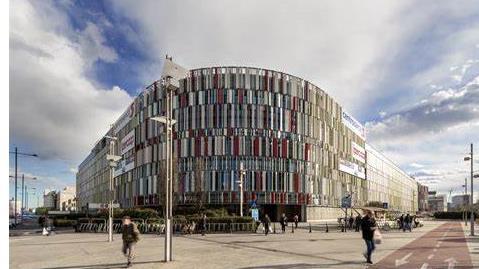Italian shopping centre company, Immobiliare Grande Distribuzione (IGD), has organised a €250 mln loan facility with a pool of national and international banks as it looks to deliver on one of its key targets.

IGD has already started in a chairman’s letter to shareholders that top of its agenda was to keep loan-to-value at its €2bn portfolio under control, with a pressing need to also obtain new financing to cover around €220 mln of maturities falling due within 18 months.
Those financial institutions that have taken part in providing €250 mln are Intesa Sanpaolo as global co-ordinator, green co-ordinator, agent and lender, Gruppo Mps, Banca Nazionale del Lavoro, Banco BPM, Cassa depositi e prestiti, Deutsche Bank, BPER Banca, and UniCredit.
In a statement, Claudio Albertini, CEO, said: ‘By means of this transaction, we have covered the financial needs through the first half of 2024.’
‘The lending banks and institutions recognised the good creditworthiness of IGD, also in light of the portfolio’s solid fundamentals and excellent operative performance, as well as our focus on sustainability.’
IGD has been navigating tricky waters especially from the onset of the covid crisis in 2020 when its malls were closed for 87 days in total and for 44 days in 2021. The company has contended with rising energy prices, the war in Ukraine, inflation, and tightening monetary policy in the guise of rising interest rates.
All these things conspired to make a slight dent in the company’s property portfolio valuation, which was marked down by independent appraisers by 2.79% at year-end 2022 to €2.08 bn.
It has 27 malls in Italy and 14 shopping centers in Romania with 157 employees.
Apart from securing a new debt facility, the goup also says it has identified some non-core asset sales that could net €180-€200 mln. Offloading of assets could include its Winmarkt subsidiary in Romania, as well as three stand-alone hypermarkets in Italy and three plots of developable land that are part of the Porta a Mare project in Livorno.
However, fundamentals of the business do appear solid.
Rent collection improved in 2022 to around 96%. Sales by retailers in its malls rose noticeably in 2022, posting an increase of 13.3% compared to 2021 and exceeding the 2019 pre-pandemic level by 0.7%.
Sales at hypermarkets also recovered, with an increase of 2.5% compared to 2021.
But profits did slide in 2022 3.6% to €103.4 mln.
IGD is my no means the only large owner of commercial real estate in Europe to be focused on its finances.
IGD has a cross over rating based two agencies: an investment grade rating BBB- with a stable outlook from Fitch Ratings and a second BB+ rating with a stable outlook from S&P.
In 2022, its average cost of debt was 2.26%, largely unchanged with respect to the 2.20% posted in 2021.
The company has been listed on the Euronext STAR Milan segment of Borsa Italiana since 2005 and has almost quadrupled its portfolio.
It was formed in 2000 following the spin-off of a portion of the real estate assets held by Coop Adriatica (now Coop Alleanza) and Unicoop Tirreno, who are still main shareholders.










